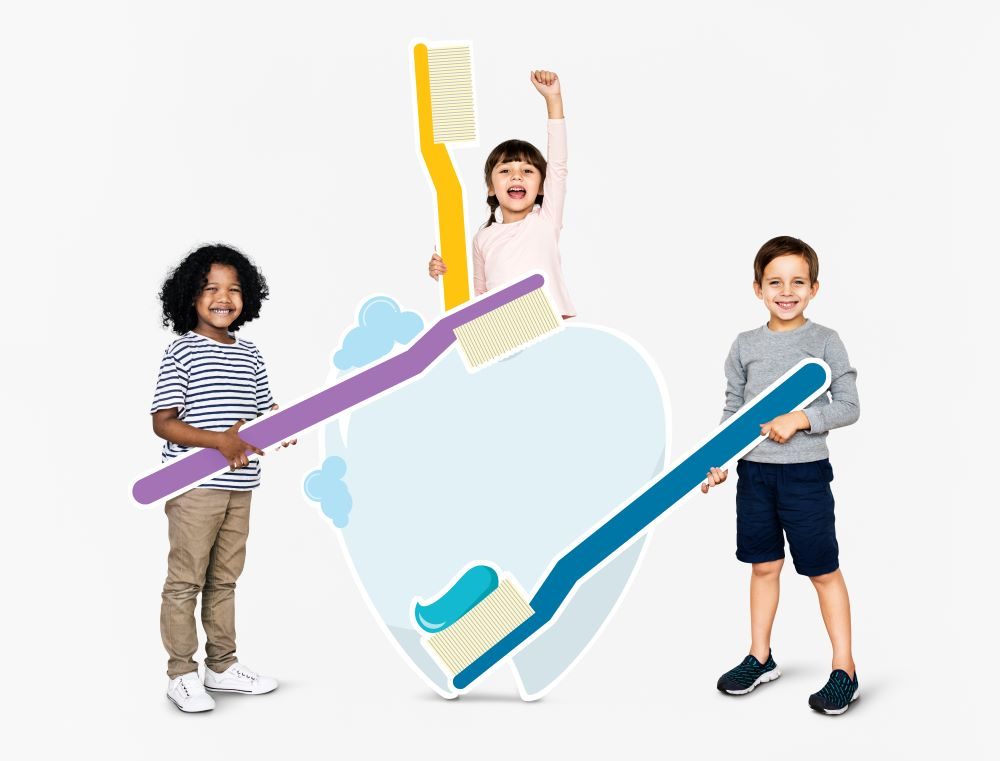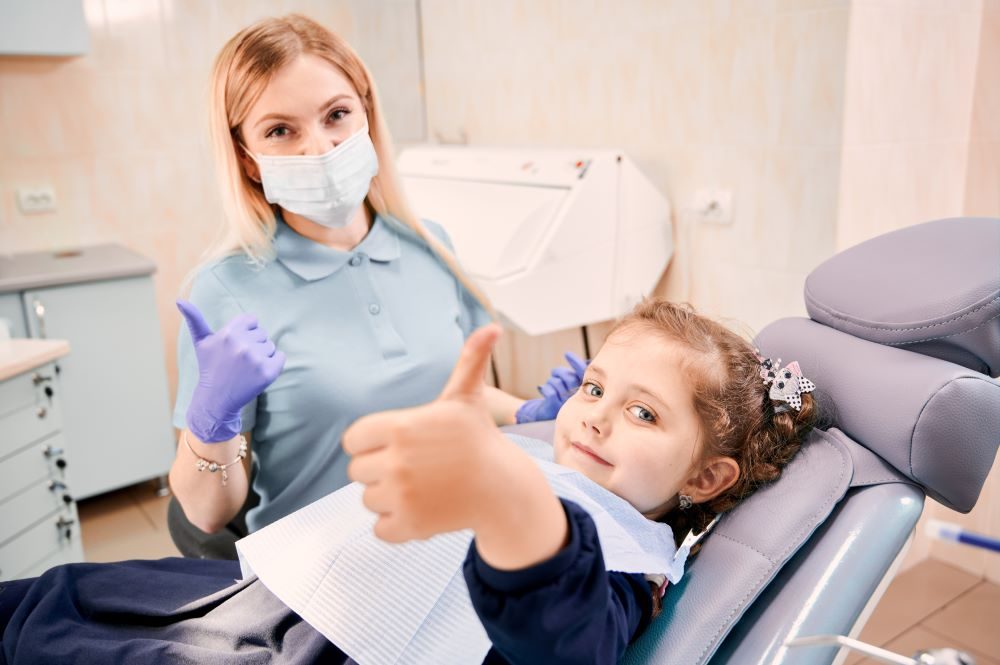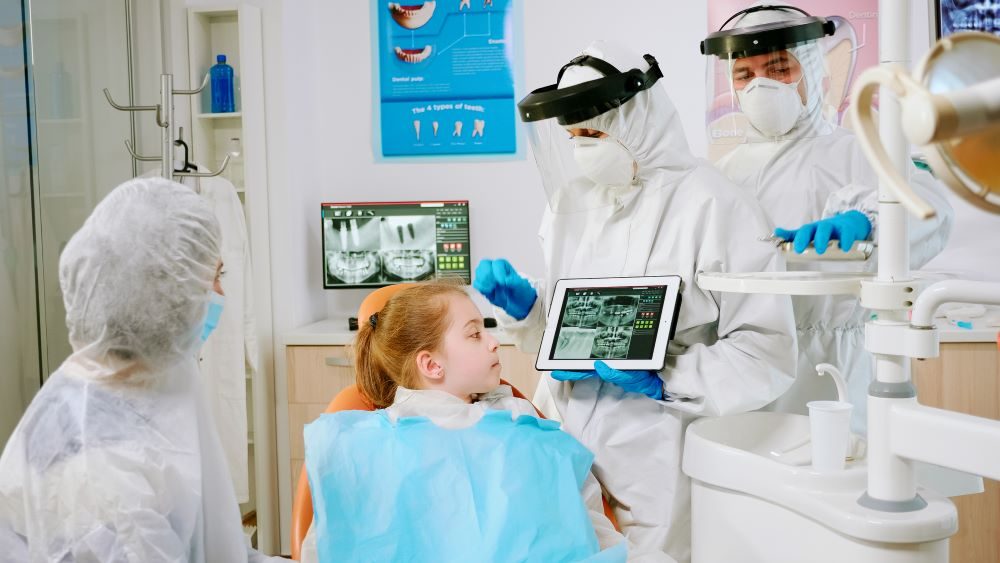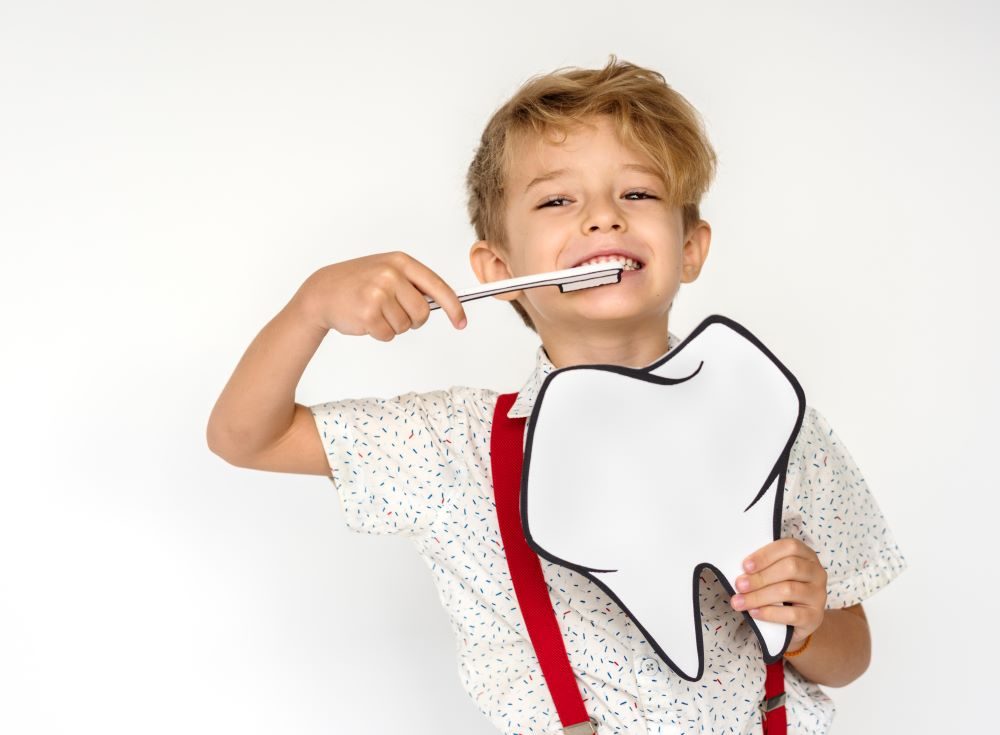Every February, we celebrate National Children’s Oral and Dental Health Month, a crucial period dedicated to raising awareness about the importance of maintaining good oral hygiene habits among our youngest members of the society. As parents, caregivers, and educators, it’s our responsibility to ensure that children develop healthy dental habits from an early age, setting the foundation for a lifetime of strong teeth and gums.
Why It Matters

Children’s dental health is more than just having a bright smile; it significantly impacts their overall well-being. Poor oral health can lead to pain, discomfort, difficulty eating, trouble concentrating in school, and even affect their self-esteem. According to the American Academy of Pediatric Dentistry, dental decay is one of the most common chronic childhood diseases, affecting millions of kids every year. By educating ourselves and our children about proper oral hygiene practices, we can prevent many of these issues.
Observing in Canada
In Canada, National Children’s Oral and Dental Health Month is observed with various events and initiatives aimed at promoting oral health awareness among children and their families. Dental clinics and community centers across the country offer free dental check-ups, educational workshops, and activities geared towards children. Schools incorporate dental health lessons into their curriculum, and local governments often partner with dental associations to distribute oral hygiene kits to families in need. Through these efforts, Canada strives to ensure that all children have access to the resources and information they need to maintain healthy smiles.
Establishing Good Habits

One of the key messages of National Children’s Oral and Dental Health Month is the importance of establishing good habits early on. This includes teaching children how to brush and floss their teeth properly, limiting sugary snacks and drinks, and scheduling regular dental check-ups. For example, parents can make brushing teeth a fun and engaging activity by using colorful toothbrushes and flavored toothpaste, or by incorporating songs and games into the routine.
Prevention is Key
Preventive measures play a crucial role in maintaining children’s oral health. Dental sealants, for instance, are thin protective coatings applied to the chewing surfaces of molars to prevent decay. Fluoride treatments are another effective way to strengthen teeth and prevent cavities. By investing in these preventive measures, parents can help safeguard their children’s smiles for years to come.
Parental Involvement and Role Modeling

National Children’s Oral and Dental Health Month underscores the significance of parental involvement and positive role modeling in shaping children’s oral hygiene habits. Parents serve as primary influencers in their children’s lives, and their own oral health practices can significantly impact their children’s behaviors. By demonstrating proper brushing, flossing, and dental care routines, parents instill lifelong habits in their children. Additionally, actively involving parents in educational initiatives and encouraging open communication about oral health within families fosters a supportive environment for children to prioritize their dental well-being. Through collaborative efforts between parents, caregivers, and dental professionals, children receive the guidance and encouragement they need to maintain optimal oral health throughout their lives.
Educational Initiatives
During National Children’s Oral and Dental Health Month, educational initiatives are launched to promote oral health awareness in schools and communities. Dental professionals often visit schools to teach children about the importance of brushing, flossing, and eating a balanced diet. Hands-on activities, such as dental health fairs and classroom demonstrations, help make learning about oral hygiene fun and interactive.
The Role of Technology

Advancements in technology have revolutionized children’s dental care. From interactive toothbrushes that play music while kids brush to dental apps that remind parents when it’s time for their child’s next dental appointment, technology is making it easier than ever to maintain good oral hygiene habits. These innovations not only make dental care more accessible but also more engaging for children.
Community Outreach Programs
During National Children’s Oral and Dental Health Month, community outreach programs play a vital role in reaching underserved populations. These initiatives often target areas with limited access to dental care, providing free screenings, fluoride treatments, and educational resources to children and families. By bringing dental services directly to communities in need, these programs help bridge the gap in oral healthcare disparities and ensure that all children have the opportunity to receive essential dental care.
Nutritional Education

Nutritional education is another crucial component of promoting children’s oral and dental health. National Children’s Oral and Dental Health Month emphasizes the importance of a balanced diet rich in fruits, vegetables, and whole grains, while minimizing sugary snacks and beverages. Educating children and their families about the relationship between diet and oral health empowers them to make healthier food choices, ultimately reducing the risk of dental decay and promoting overall well-being. Through workshops, informational materials, and interactive activities, children learn how their dietary habits impact their oral health, empowering them to make informed decisions for a lifetime of healthy smiles.
Empowering Career Growth with ABM College
For individuals passionate about making a difference in children’s oral health, ABM College offers a pathway through its Dental Office Administration Diploma Program. This comprehensive course equips students with practical skills essential for success as Dental Office Administrators. With in-depth training on healthcare communication, medical terminology, and various dental reception procedures, students emerge prepared to excel in the field. Moreover, the program includes a practicum component, providing real hands-on experience in a dental administration setting, thereby refining their skills and enhancing employability. Through ABM College’s program, aspiring professionals can realize their career aspirations and acquire the industry-specific skills needed to thrive in the dental healthcare sector.
ABM College offers a Diploma in Dental Office Administration in Manitoba and New Brunswick too, so you can enrich your skills no matter your location.
Conclusion
National Children’s Oral and Dental Health Month serves as a poignant reminder of the paramount importance of prioritizing children’s oral health and cultivating positive dental habits early on. By imparting knowledge, promoting preventive measures, and leveraging technology, we empower children to take charge of their oral health and embark on a journey towards a lifetime of healthy smiles. Moreover, through initiatives like ABM College’s Dental Office Administration Diploma Program, individuals can equip themselves with the requisite skills and practical experience to pursue fulfilling careers in dental administration, thereby contributing to the well-being of future generations. Let us unite this February in our commitment to championing children’s dental health, laying the groundwork for brighter, healthier futures.
Contact us today to learn more about this program.
Read more trending blogs.
About The Author

Private Career College
ABM College is a leader in career-focused education, committed to empowering students with industry-relevant skills. With expert instructors and practical training, ABM College delivers high-quality programs in health, business, technology, and more, ensuring graduates are prepared to meet workforce demands. Known for its supportive learning environment and a focus on real-world application, ABM College is a trusted educational partner helping students achieve professional success across Canada.
